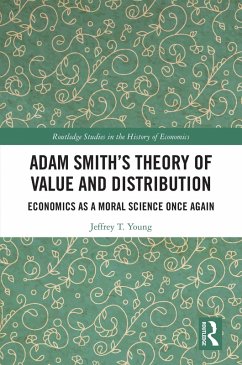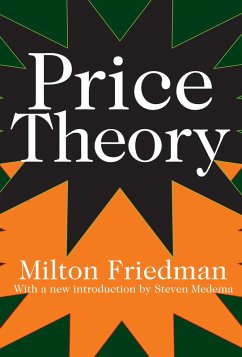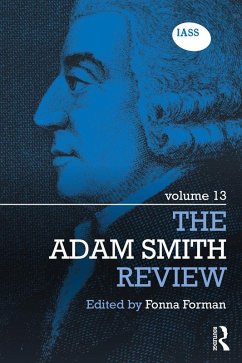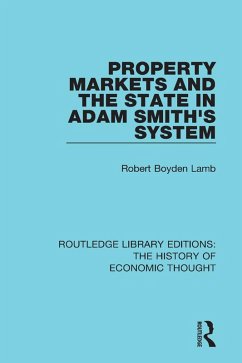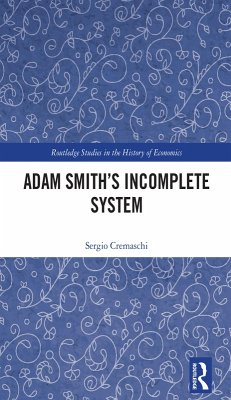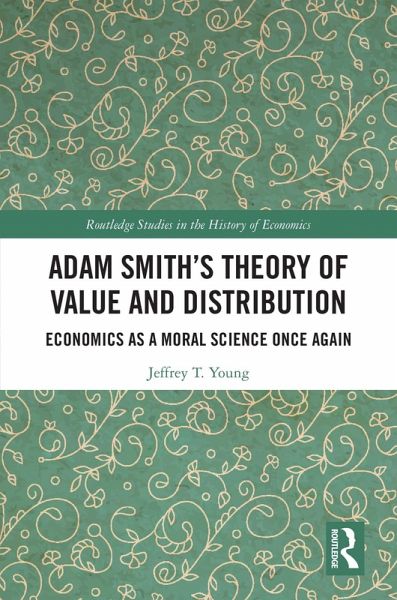
Adam Smith's Theory of Value and Distribution (eBook, ePUB)
Economics as a Moral Science Once Again
Versandkostenfrei!
Sofort per Download lieferbar
45,95 €
inkl. MwSt.
Weitere Ausgaben:

PAYBACK Punkte
23 °P sammeln!
Ever since the time of his early interpreters, beginning with David Hume, Adam Smith's theory of value has been the subject of confusion and misunderstanding-including a controversy which still rages over whether Smith held a labour theory of value, and, if so, whether he held to it throughout Wealth of Nations, or if it was confined to the "Early and Rude State"? This book provides a close reading of Smith's key text, and also incorporates material from the other parts of Smith's oeuvre, especially from The Theory of Moral Sentiments, to yield original and important insights into Smith's theo...
Ever since the time of his early interpreters, beginning with David Hume, Adam Smith's theory of value has been the subject of confusion and misunderstanding-including a controversy which still rages over whether Smith held a labour theory of value, and, if so, whether he held to it throughout Wealth of Nations, or if it was confined to the "Early and Rude State"? This book provides a close reading of Smith's key text, and also incorporates material from the other parts of Smith's oeuvre, especially from The Theory of Moral Sentiments, to yield original and important insights into Smith's theory of value. The book operates on the assumption that Smith is proposing relatively simple ideas about price and takes a conventional view that simple Supply and Demand models can illuminate, clearly and consistently with his text, his theory of price. Combining these elements, the book argues that, contra Marx, Smith does not have a labour theory of value at all, understood as a theory of the determination of the relative price structure. Instead, Smith is placed squarely in the supply and demand, general equilibrium framework and the claim that he is part of a "surplus tradition", which receives its highest treatment in the work of Piero Sraffa, is refuted. This book will be of particular interest to Adam Smith specialists, historians of economic thought, and research economists who have an interest in Smith.
Dieser Download kann aus rechtlichen Gründen nur mit Rechnungsadresse in A, B, BG, CY, CZ, D, DK, EW, E, FIN, F, GR, HR, H, IRL, I, LT, L, LR, M, NL, PL, P, R, S, SLO, SK ausgeliefert werden.




